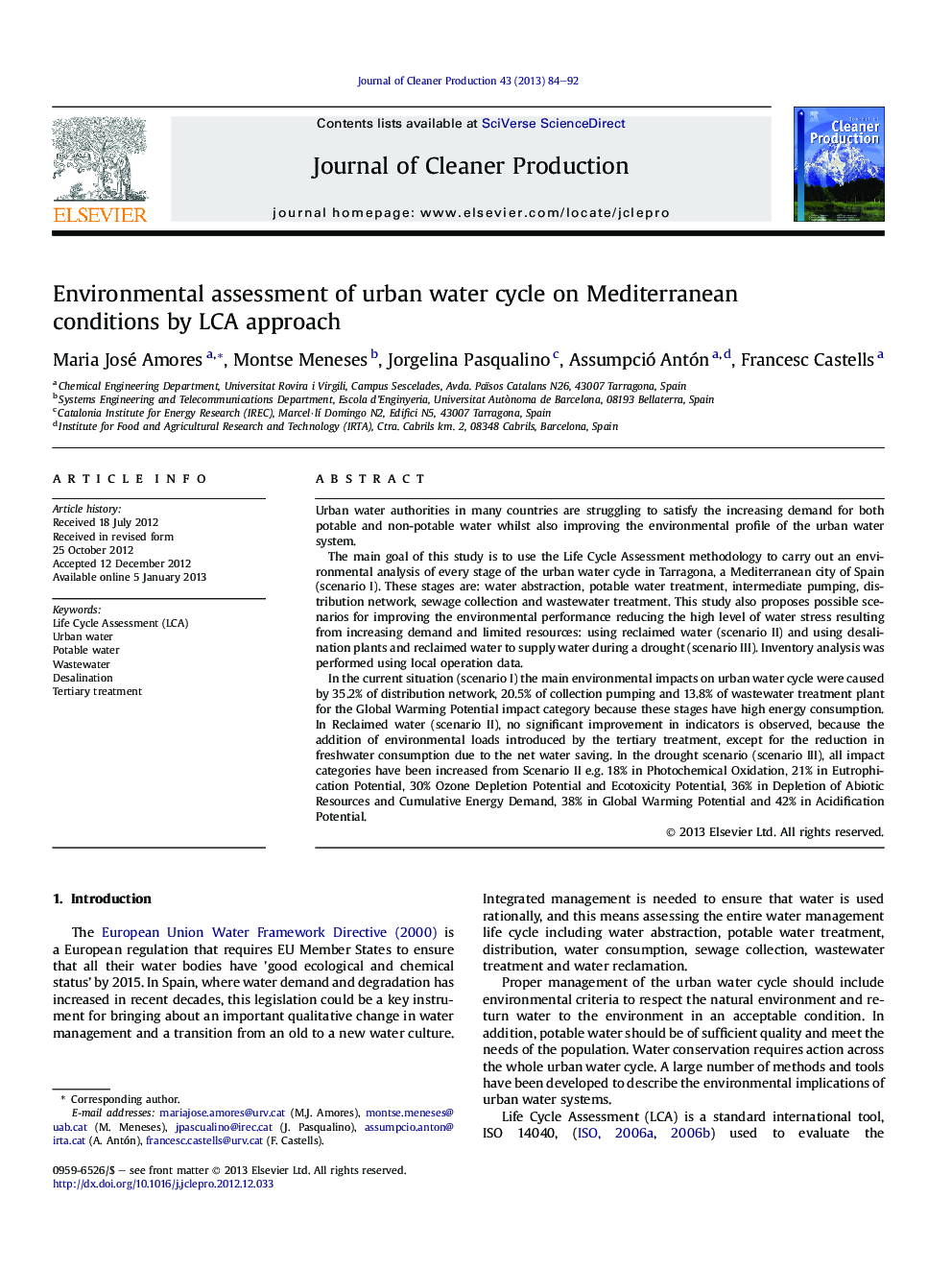| کد مقاله | کد نشریه | سال انتشار | مقاله انگلیسی | نسخه تمام متن |
|---|---|---|---|---|
| 1745448 | 1522203 | 2013 | 9 صفحه PDF | دانلود رایگان |

Urban water authorities in many countries are struggling to satisfy the increasing demand for both potable and non-potable water whilst also improving the environmental profile of the urban water system.The main goal of this study is to use the Life Cycle Assessment methodology to carry out an environmental analysis of every stage of the urban water cycle in Tarragona, a Mediterranean city of Spain (scenario I). These stages are: water abstraction, potable water treatment, intermediate pumping, distribution network, sewage collection and wastewater treatment. This study also proposes possible scenarios for improving the environmental performance reducing the high level of water stress resulting from increasing demand and limited resources: using reclaimed water (scenario II) and using desalination plants and reclaimed water to supply water during a drought (scenario III). Inventory analysis was performed using local operation data.In the current situation (scenario I) the main environmental impacts on urban water cycle were caused by 35.2% of distribution network, 20.5% of collection pumping and 13.8% of wastewater treatment plant for the Global Warming Potential impact category because these stages have high energy consumption. In Reclaimed water (scenario II), no significant improvement in indicators is observed, because the addition of environmental loads introduced by the tertiary treatment, except for the reduction in freshwater consumption due to the net water saving. In the drought scenario (scenario III), all impact categories have been increased from Scenario II e.g. 18% in Photochemical Oxidation, 21% in Eutrophication Potential, 30% Ozone Depletion Potential and Ecotoxicity Potential, 36% in Depletion of Abiotic Resources and Cumulative Energy Demand, 38% in Global Warming Potential and 42% in Acidification Potential.
► Increasing renewable energies in electric mix, categories impact will be reduced.
► Desalination application is justified in drought situations (high energy consumption).
► Reusing treated wastewater is quite beneficial when it can replace desalinated water.
► Treated wastewater should be promoted for non-potable uses.
► Tertiary treatment influences freshwater consumption by replacing it in agriculture.
Journal: Journal of Cleaner Production - Volume 43, March 2013, Pages 84–92